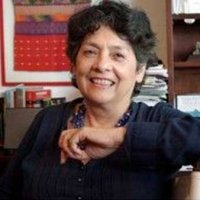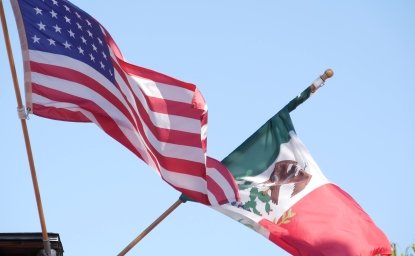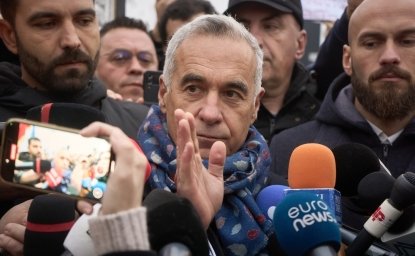On Monday, February 25 the America’s Program of the Woodrow Wilson Center held a seminar on the current political situation in Venezuela. You can watch a webcast of the whole thing here.
There were a couple of key points in which the four presenters coincided.
- For the time being there is a relative but fragile stability.
- The government has a lot of support for both rational and emotional reasons.
- The economy is not on a sustainable track and could run into trouble in the medium term, but probably not the short term.
Historian Margarita López Maya (Universidad Central de Venezuela) pointed out how the absence of Chávez is the key element of the current political situation. His charisma, along with high oil prices, have long been able to cover up an increasingly tenuous economic situation, declining infrastructure and state dysfunction. Without his presence these problems are increasingly evident. She pointed out the ever increasing number of protests which now number about fifteen per day. In addition crime and violence is out of control, making Caracas the most dangerous capital in Latin America.
Chavismo is currently in a process of trying to legitimize its power, making Maduro ever more visible. Complicating the situation for the PSUV is that the leaders of the government are there precisely because they have not stood out or showed exceptional ability over the years. The opposition is weak and fractured due to the fact that it has suffered two important electoral defeats in the past six months. If the opposition were to attain power there would be significant conflict in the government since Chavismo would still be in charge of all of the other branches of government. A better strategy for the opposition would probably be to prepare for the medium term.
Risa Grais-Targo (Eurasia Group) pointed out that since Chávez came to power oil production has declined. This has been masked by high oil prices, but now a good deal of their oil is already committed to diplomatic deals like Petrocaribe, and to pay back loans from China. In the medium term they will be able to begin to exploit the immense reserves of heavy oil in the Orinoco belt. In the question and answer period both López Maya and Grais-Targo argued that Venezuela has some wiggle room in their finances and are not on the brink of economic collapse as some would suggest.
Former US Ambassador to Venezuela Patrick Duddy (Duke University) emphasized that the US is still Venezuela’s biggest commercial partner and there are a lot of US companies doing business in Venezuela. Information on attempts to reestablish diplomatic relations continues to leak. Duddy emphasized the unsustainability of the Venezuela’s monoexport economy which now needs to import almost everything. Venezuela has had inflation over 20% for ten years. However, it is undeniable that Chávez remains highly popular, even in his absence. There are also many countries hoping Chávez makes a full recovery, most particularly Cuba, since Venezuela has been very generous with them.
David Smilde (Washington Office on Latin America and University of Georgia) looked at the rational and emotional reasons average people support Chávez. He sought to challenge the ideas often seen in the media that: people’s emotion equals irrationality, their rationality is “instrumental,” and that both emotion and instrumental rationality are ephemeral. He pointed to scholarship showing that emotions can be rational, rationality can be emotional, and that both can endure in time.
He looked at how this plays out in terms of people’s individual grounds of security. Most of the academics, journalists and opinion makers that try to understand Chavismo have a hard time because they themselves live in a globalized space in which their security depends on their financial resources, credentials, professional networks and cultural capital. Most people who support Chávez, in contrast, live in a national space in which their security depends on the local economy, social solidarity, and common culture. The Chávez government with its emphasis on national economic growth, social policy spending, and nationalism, provides these people with a sense of well-being and security. While this can clearly be described in terms of rational interests, this type of inclusion is also deeply emotional. It is hard for the average person to judge whether these policies are sustainable or not.
Thinking in terms of rational emotions and emotional rationality can help us dispense with the idea that Chavismo will quickly disappear if Chávez exits the scene. It can also help us realize that the Chavista complex is fully understandable and can be engaged through smart diplomacy.
For the original post, please click here.





